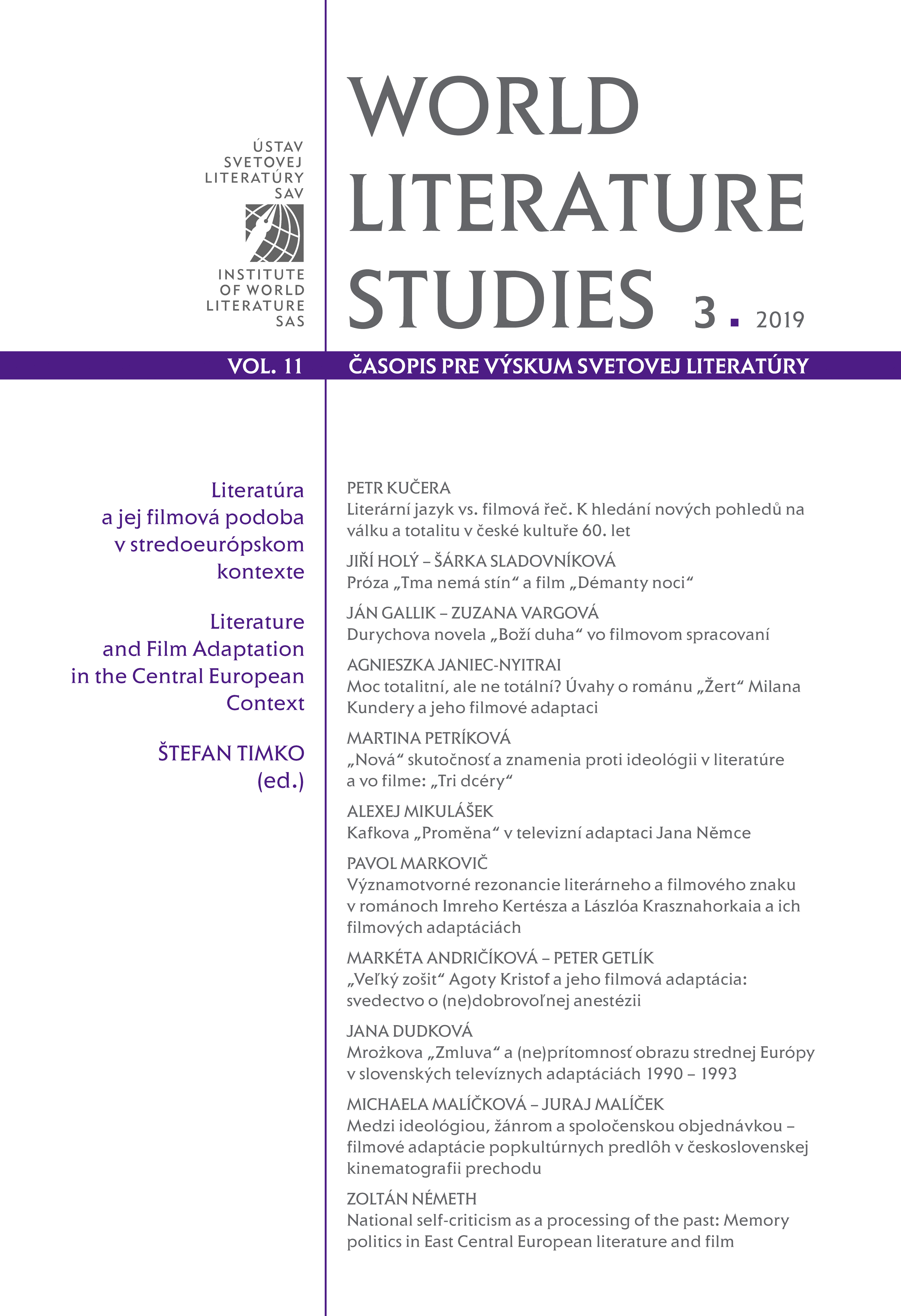„Nová“ skutočnosť a znamenia proti ideológii v literatúre a vo filme: „Tri dcéry“
The “new” reality and the signs against ideology in literature and the film: “Three Daughters”
Author(s): Martina PetríkováSubject(s): Language and Literature Studies, Cultural history, Studies of Literature, Comparative Study of Literature, Slovak Literature, Film / Cinema / Cinematography
Published by: SAV - Slovenská akadémia vied - Ústav svetovej literatúry
Keywords: "Literature"; "Film"; "Ideology"; "Signs against ideology"; "Three Daughters";
Summary/Abstract: Bednár Uher’ s work from the sixties can be regarded as a testimony about a period conditionedby totalitarian ideology and about a man who is confronted with turning moments in history.He increases his human value “only” by life, by the moral value choice, not by submittingto the norms of the system. That is why the screenplay (1968) and the film Three Daughters(1967) are targeted against totalitarianism. The contemporary communist ideology, which“writes the history” with language as an example of socio-cultural pressure, by its symbols asmodels for reality, is confronted with character personalities of the thematic historical sectionthey have formed to the extent that they have different attitudes within individual discourses.In the story of Three Daughters the heroine defends her father and she beats “culture of power”only in the perspective.
Journal: World Literature Studies
- Issue Year: 11/2019
- Issue No: 3
- Page Range: 51-62
- Page Count: 12
- Language: Slovak

